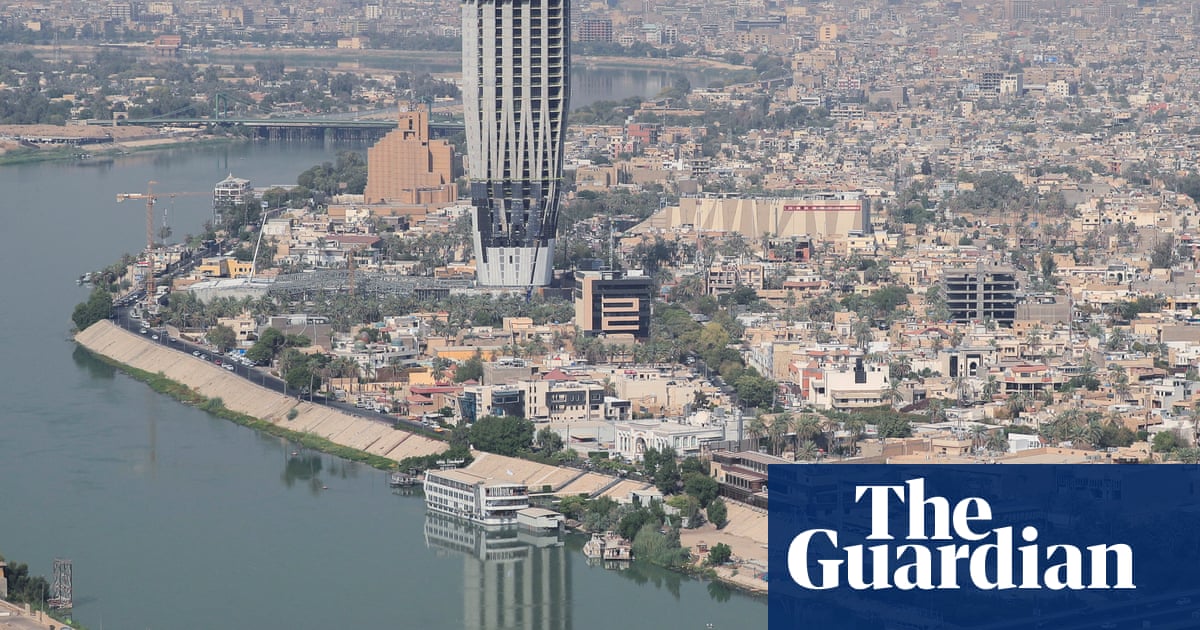The United States has ordered the departure of “non-essential” diplomatic staff and their families from embassies in the Middle East amid growing diplomatic tensions in the region.
The US diplomatic draw-down came asIranthreatened to target US military bases in the region if conflict breaks out, while Donald Trump said he was “less confident” about reaching a nuclear deal.
The state department said on Wednesday it had ordered the departure of all non-essential personnel from the US embassy in Baghdad,Iraq, based on its commitment “to keeping Americans safe, both at home and abroad”. The embassy already had been on limited staffing, and the order will not affect a large number of personnel.
The US is also authorizing the departure of non-essential personnel and family members from Bahrain and Kuwait.
Defense secretary Pete Hegseth “has authorized the voluntary departure of military dependents from locations” across the region, US Central Command said in a statement. The command “is monitoring the developing tension in the Middle East”.
The partial evacuations come at a moment of heightened tensions in a region already aflame after 18 months of war in Gaza that has raised fears of a wider conflagration pitting the US and Israel againstIranand its allies.
Tensions in the region have risen further in recent days asnuclear talks between the US and Iran appear to have hit an impasse.
On Wednesday, Iran’s defence minister, Aziz Nasirzadeh, responded to US threats of military action if the talks fail, saying: “All its bases are within our reach, we have access to them, and without hesitation we will target all of them in the host countries.
“God willing, things won’t reach that point, and the talks will succeed,” Nasirzadeh said, adding that the US side “will suffer more losses” if it came to conflict.
Iran and the US have been locked in a diplomatic standoff over Iran’s uranium enrichment, with Tehran defending it as a “non-negotiable” right and Washington calling it as a “red line”.
Trump had previously expressed optimism about the talks, saying during a Gulf tour last month that Washington was “getting close” to securing a deal.
But in an interview published on Wednesday, Trump said he was “less confident” the US and Iran could reach a deal, in response to a question about whether he believed he could stop Tehran enriching uranium.
Speaking to the New York Post’s podcast Pod Force One, which was recorded on Monday, Trump said he was losing hope a deal could be reached. “I don’t know. I did think so, and I’m getting more and more – less confident about it. They seem to be delaying and I think that’s a shame. I am less confident now than I would have been a couple of months ago,” he said.
“Something happened to them but I am much less confident of a deal being made … Maybe they don’t wanna make a deal, what can I say? And maybe they do. There is nothing final.”
Trump maintained that Washington would not allow Tehran to obtain nuclear weapons, saying “it would be nicer to do it without warfare, without people dying”.
The top US military officer for the Middle East, Gen Erik Kurilla, had been scheduled to testify before the Senate armed services committee on Thursday, but that testimony has now been postponed, according to the committee’s website. The Pentagon did not have an immediate comment on why Kurilla’s testimony was postponed.
